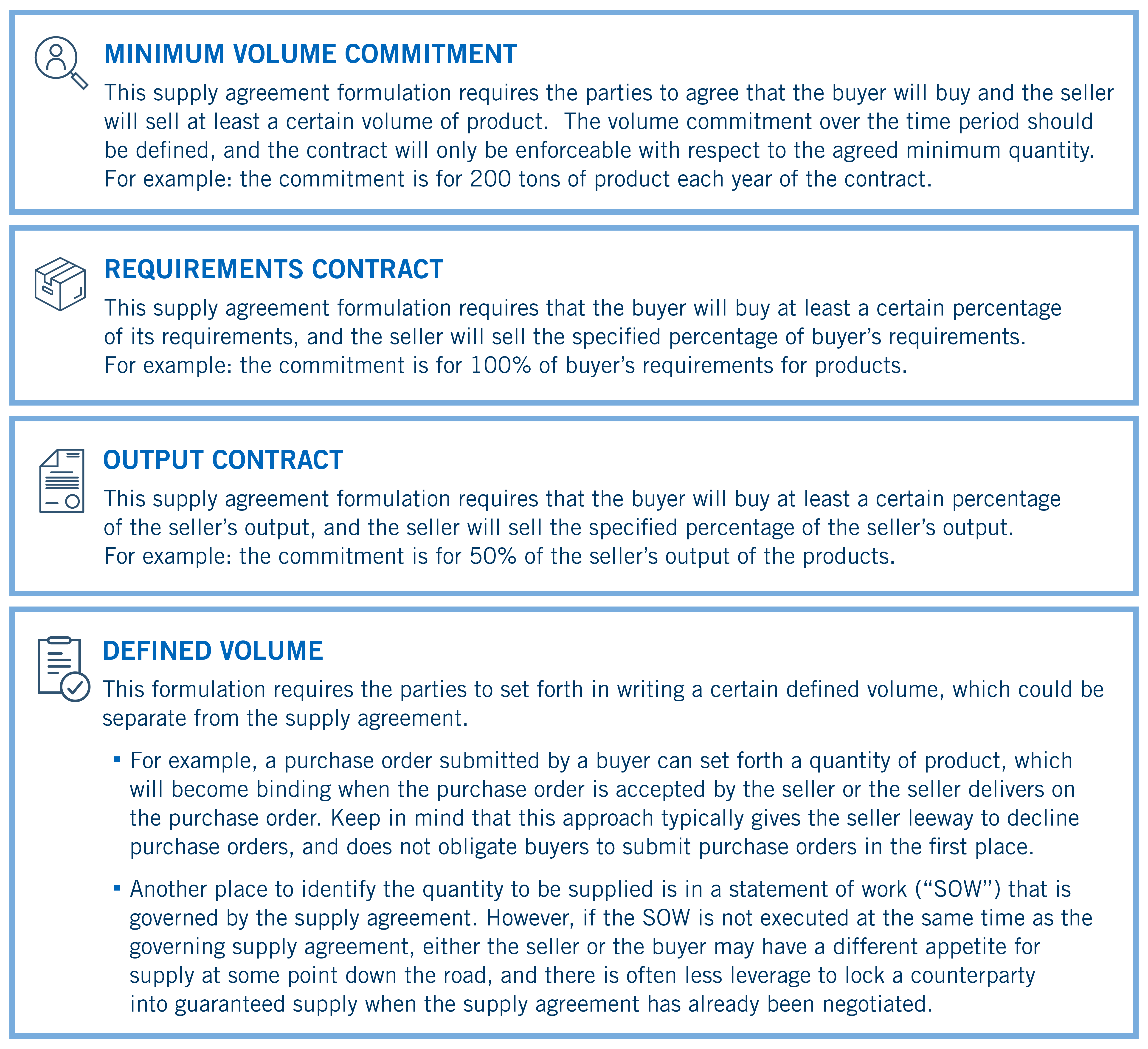
In the business world, many companies enter into long-term contracts with respect to high volume, expensive, or essential transactions. A long-term contract is certainly beneficial for these types of transactions, but companies should also consider whether the long-term contract should contain a specific quantity for the products being purchased. This is because, under Article 2 of the Uniform Commercial Code (“UCC”), there is no enforceable sale of goods without a specified quantity set forth in the contract. Failure to agree to purchase or sell a specific quantity of goods could be problematic if assurance of supply is important for business.
| UCC § 2-201(1). Formal Requirements; Statute of Frauds.
Except as otherwise provided in this section a contract for the sale of goods for the price of $500 or more is not enforceable by way of action or defense unless there is some writing sufficient to indicate that a contract for sale has been made between the parties and signed by the party against whom enforcement is sought or by his authorized agent or broker. A writing is not insufficient because it omits or incorrectly states a term agreed upon but the contract is not enforceable under this paragraph beyond the quantity of goods shown in such writing. |
So, what are some ways that companies specify binding quantities in their contracts? Here are some common approaches:

While sometimes a business team may be hesitant to agree to purchase or sell a certain volume, unfortunately this commitment is needed to bind the other party to the quantity of supply. However, the failure to establish a set quantity in a contract does not necessarily abrogate the utility of entering into a long-term supply agreement; the terms agreed to in a long-term supply agreement may still be useful to set forth terms that will govern sales once quantities have been established (e.g. via a purchase order fulfilled pursuant to the agreement).
Ultimately, businesses that consistently put long-term contracts in place that contain defined quantity requirements for the sale or purchase of high-volume, expensive, or essential products are well-positioned to ensure supply and maintain a reliable supply chain.
